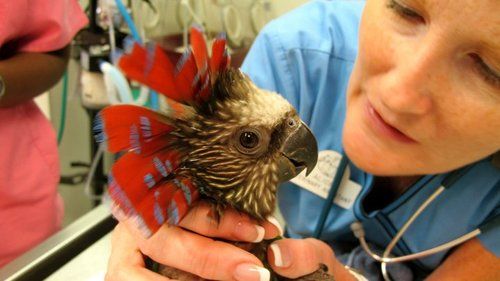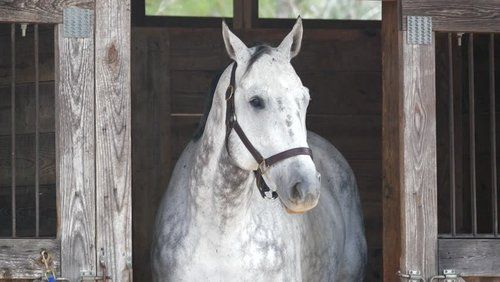Exotic Pets Rock!
First of all, what exactly is an “exotic” pet? For insurance purposes, any animal other than a cat, dog or domesticated farm animal is considered exotic.
Exotic pet insurance is that much more important because treatments often cost more. First, veterinarians often charge more for their specialized knowledge, and rightfully so. Second, with exotic pets come a variety of more exotic medical conditions. Like other pets, they are also subject to things like lacerations, fractures, infections, swallowing foreign objects and insect bites.
Pet Insurance and Rising Veterinary Costs
The good news is that veterinary care is more sophisticated than ever. Advances in human healthcare are driving enhanced veterinary care. Examples include CT scans and MRIs. Your vet is often more able to treat your beloved pet than in the past. More advanced care comes at a cost. The Bureau of Labor Statistics (BLS) says pet expenses per U.S. household increased 35 percent from 2007 to 2016.
When you evaluate pet insurance, always be clear about what’s covered and what’s not. Be prepared to pay out-of-pocket for routine procedures like:
- Preventive care
- Vaccinations
- Spaying and neutering
- Exam fees
- Owner negligence
- Expenses related to breeding
Keep in mind that an insurer may offer a wellness program that addresses routine care.
Pre-existing conditions can be an issue. The Affordable Care Act (ACA) requires coverage of human pre-existing conditions. Pet insurers may or may not cover pre-existing conditions, certain hereditary conditions and older pets. The best way to deal with this is to get a policy when you get your pet.
Co-pays, deductibles and maximum payouts are all common with pet insurance. You’ll usually pay upfront for covered veterinary services. You then file a claim with your pet insurer. Once a claim is approved, you are reimbursed by check or direct deposit.
Types of Pet Insurance
Some pet insurers specialize in cats and dogs. Others, in horses. Exotic pet insurance is available for pets as varied as rabbits, birds, snakes, turtles, hamsters, ferrets and gerbils. It’s also possible to insure larger pets like goats, llamas and potbellied pigs.
Bird Insurance
Proud bird owners consider their pets a part of the family, just like other pet owners. Perhaps you have a cockatoo, parrot or cockatiel. Many birds, like the hyacinth macaw and the toucan, are significant investments. Exotic pet insurance is very helpful in these and many other cases. Birds can develop various challenging conditions. Bladder infections, vomiting, diarrhea, and hypothyroidism are some examples. When a cat injures a pet bird, the risk of infection is often the key concern. It’s important to locate a local veterinarian trained to treat birds.
Rabbit Insurance
As with birds, finding a veterinarian trained to treat rabbits is key. Specialized knowledge of surgical and anesthesia techniques is important. House Rabbit Society, a non-profit rabbit rescue organization, tracks vets maintains a list of veterinarians that treat rabbits. Rabbits may require veterinary care due to a variety of medical conditions. GI stasis, upper respiratory infections and parasites are some examples.A rabbit specialist knows what to watch for if there’s an injury after an encounter with another animal.
Although rabbit insurance doesn’t typically cover routine care, spaying female rabbits is crucial. About three-fourths of unspayed female rabbits develop uterine cancers. Routine care also includes a checkup after adoption, followed by annual exams. Once your rabbit is five years old, your vet may recommend two routine exams each year.
Horse (Equine) Insurance
Although a horse is not technically considered an exotic pet, its needs are very different from those of a cat or a dog. Accordingly, there are companies that specialize in horse insurance. A major medical horse insurance policy will not cover routine exams and preventative care like teeth cleaning, worming and vaccinations. However, horse insurance does cover many medical expenses, including those that are expensive. A horse policy typically covers diagnosis, treatment, medication, anesthesia and surgery when needed. It will also cover a hospital stay.
Horse insurance prices reflect the higher cost of treating bigger animals. Veterinary facilities have to be larger. Diagnostic and other equipment is expensive. Horses need greater quantities of meds and anesthesia drugs. Boarding during recovery further increases costs. As with other types of pet insurance, be aware of deductibles and co-pays. It is also possible to exceed the maximum coverage, often $5,000 or $7,500.
Equine mortality insurance is often required when you take out a major medical policy. The value of your horse is determined at the time of purchase. Should the horse not survive due to accident or illness, you are reimbursed for your pet’s predetermined value. You’re also reimbursed if your horse is stolen but not recovered. Loss-of-use, personal liability and limited mortality are other types of horse insurance to consider.
Contact Us Today
At Pet Insurance Quotes, we make it easy for you to find the right insurance for your exotic pet or horse. Our time-saving service is free, and it does not impact your rates.
Related Content
























I wanted a quote for my two guinea pigs but was unable to do it on your site. I was glad to see that there was coverage to be had.